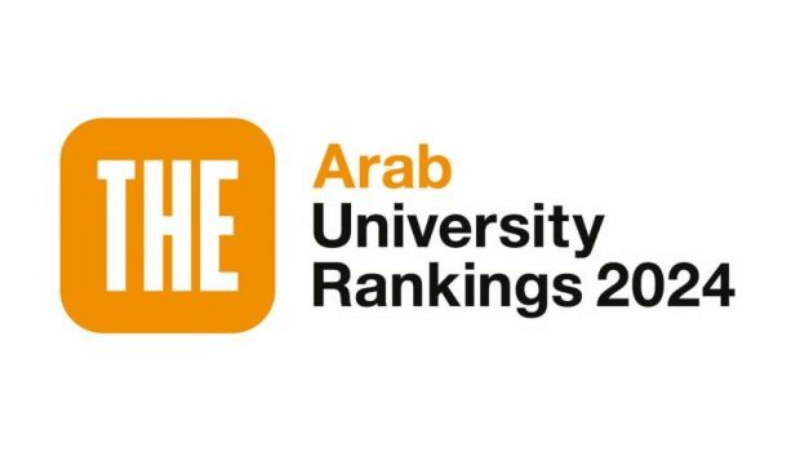Arab University Rankings 2024: Saudi Arabia and UAE Lead the Way as Jordan and Egypt Rise in Academic Strength

The latest Times Higher Education (THE) Arab University Rankings highlight a transformative period for higher education in the Arab world. While Saudi Arabia and the United Arab Emirates (UAE) continue to lead, with dominant positions among the top institutions, countries like Jordan and Egypt are emerging as significant players. These developments signal a shift, as the higher education landscape expands beyond the traditional dominance of Gulf nations.
Jordan’s Historic Rise: Breaking Into the Top 10
Jordan made history this year by securing its first-ever position in the top 10. The University of Jordan climbed from 16th place last year to claim the ninth spot. This achievement underscores Jordan’s growing emphasis on improving education quality and research output.
The nation now boasts 19 ranked universities, with five making it into the top 50. Among these, several institutions recorded impressive gains:
- Jordan University of Science and Technology rose from 23rd to joint 21st, showcasing consistent improvement.
- Applied Science Private University and Al-Ahliyya Amman University made significant leaps, moving from the 91-100 band to the 25th and 28th spots, respectively.
Jordan’s average overall score of 48 and research quality score of 70 place it third in the region, behind Saudi Arabia and the UAE. This strong performance reflects the country’s recent focus on quality assurance, accreditation, and international competitiveness.
Egypt’s Return to Prominence
Egypt also marked a milestone, with Cairo University securing the eighth spot after jumping an impressive 20 positions from joint 28th last year. This achievement makes Cairo University the first Egyptian institution to break into the top 10 since 2022 when Zewail City of Science and Technology held the 10th spot.
Egypt’s higher education system performs particularly well under THE’s society pillar, which evaluates industry income and societal contributions. However, the sector faces challenges stemming from government control, which limits research autonomy and international publishing. Despite these obstacles, Cairo University’s rise demonstrates Egypt’s potential to solidify its position among the region’s top academic performers.
Saudi Arabia’s Continued Dominance
Saudi Arabia remains a powerhouse in Arab higher education, holding the top three spots for the first time:
- King Abdullah University of Science and Technology (KAUST)
- King Fahd University of Petroleum and Minerals (tied for second)
- King Saud University (tied for second)
The Kingdom has five universities in the top 10, including King Abdulaziz University (5th) and King Khalid University (10th). Saudi Arabia’s research initiatives, driven by Vision 2030, have established it as a global hub for innovation in fields such as nanotechnology, energy, and biotechnology. The country’s research quality score of 78 is among the highest in the region.
UAE: Excellence Amid Challenges
The UAE remains a strong contender in the rankings, though it saw reduced representation in the top 10 compared to previous years. Khalifa University (6th) and the United Arab Emirates University (7th) continue to represent the country at the highest level.
While institutions like the University of Sharjah and Abu Dhabi University fell to 11th and 14th positions, respectively, the UAE still boasts the highest average overall score (64) and research quality score (84) in the region for countries with more than 10 universities ranked. These achievements reflect the UAE’s investments in advanced research infrastructure, international collaborations, and cutting-edge fields such as artificial intelligence and engineering.
The Expanding Landscape of Arab Higher Education
Beyond the Gulf, other Arab nations are making strides in higher education:
- Lebanon: Despite economic challenges, Lebanon’s private-sector universities continue to excel. The Lebanese American University climbed to 12th place, up from joint 16th last year, reinforcing Lebanon’s legacy as a pioneer in Arab higher education.
- Tunisia and Morocco: Tunisia, with 10 ranked universities, achieved an average score of 42, while Morocco, with 14 institutions, recorded an average of 40.
- Iraq: As the most represented country in the rankings with 45 universities, Iraq demonstrated steady growth, though it remains hindered by political and economic instability.
- Syria: Making its debut in the rankings, Syria now has two institutions listed, with Damascus University leading the way in the 161-180 band.
Challenges Hindering Regional Growth
While Arab universities are making significant progress, they face numerous challenges that limit their global competitiveness:
- Political Instability: Nations such as Syria, Iraq, Yemen, and Lebanon struggle with disrupted education systems, damaged infrastructure, and brain drain due to ongoing conflicts and crises.
- Mismatch with Labor Market Needs: Many universities lack programs aligned with job market demands, leaving graduates struggling to find employment.
- Underfunding: Investment in higher education across the region remains below global averages, impeding the development of world-class institutions.
- Limited Research Capacity: Despite improvements in the Gulf, many Arab nations still fall short in producing impactful, globally recognized research.
Experts’ Insights
Hanada Taha Thomure, a professor at Zayed University, attributes Saudi Arabia’s and the UAE’s successes to increased funding, modern research facilities, and international partnerships. “Saudi Arabia’s Vision 2030 and the UAE’s collaborations with global institutions have significantly boosted research productivity and innovation,” she notes.
Meanwhile, Alexander Farley from the Wilson Center highlights Jordan and Egypt’s progress but emphasizes the need for greater investment in quality assurance and autonomy to sustain growth.
Looking Ahead: The Path to Excellence
The 2024 Arab University Rankings reflect a region in transformation. While the Gulf states remain dominant, emerging players like Jordan and Egypt are reshaping the higher education narrative. The rankings underscore the importance of sustained investments, regional collaboration, and alignment with global standards to overcome challenges and unlock the full potential of Arab universities.
As these institutions continue to rise, they pave the way for a more competitive, diverse, and innovative academic landscape across the Arab world.




